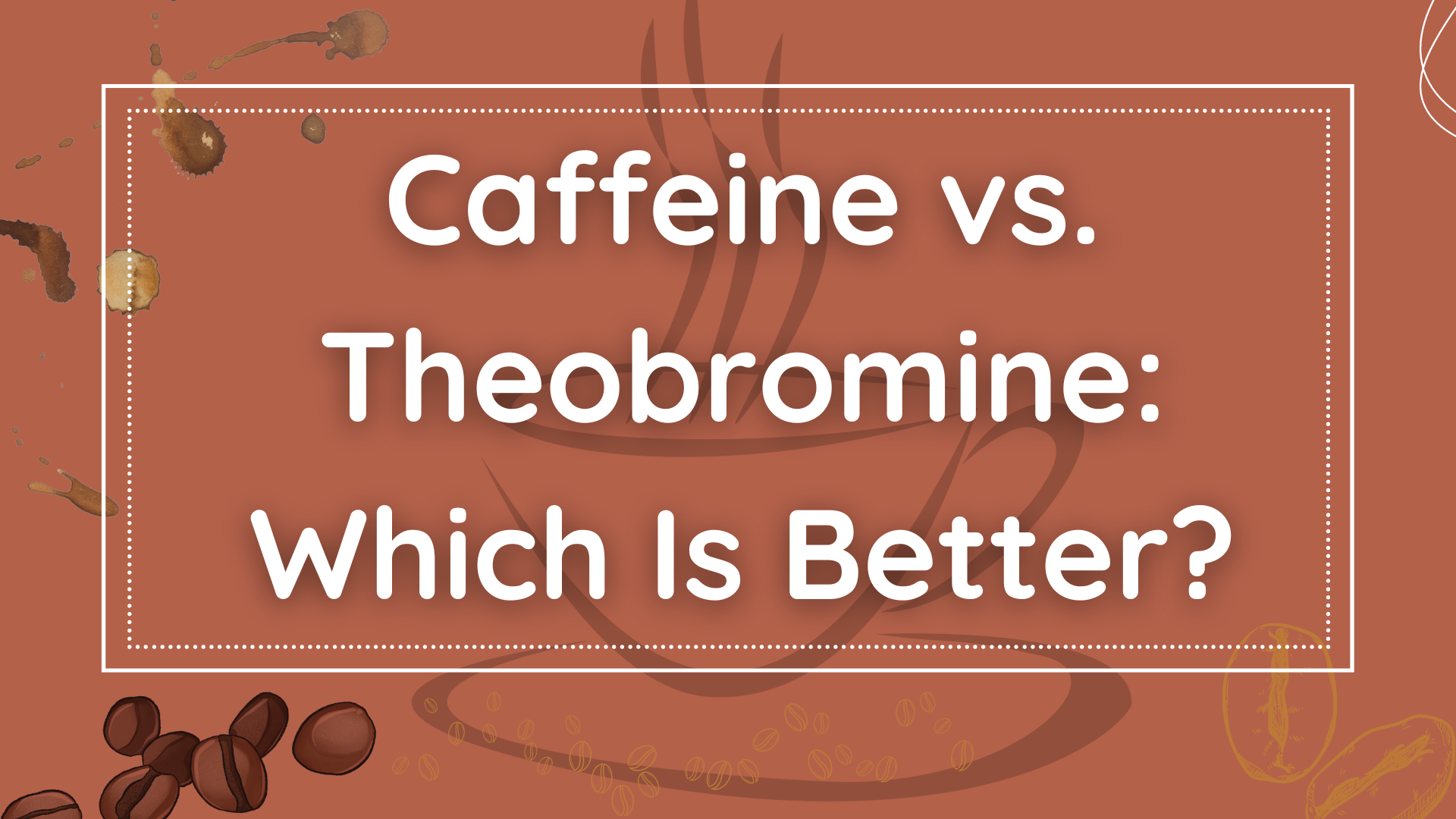
Caffeine vs. Theobromine
Caffeine and theobromine are two naturally occurring compounds that are found in various foods and beverages. While they share some similarities, they also have distinct properties and effects on the body. The debate over which is better, caffeine or theobromine, largely depends on individual preferences and specific circumstances.
Caffeine is a well-known stimulant that is commonly found in coffee, tea, energy drinks, and certain sodas. It stimulates the central nervous system, promoting wakefulness and increasing alertness. Many people rely on caffeine for a boost of energy and to combat fatigue. It can enhance cognitive function and improve focus, making it a popular choice for those needing to stay alert and productive. However, excessive consumption of caffeine can lead to side effects such as jitteriness, increased heart rate, and disrupted sleep patterns.
On the other hand, theobromine is a compound found in chocolate, specifically in cocoa beans. It is a mild stimulant that also has a relaxing effect on smooth muscles, including those found in the heart. Theobromine is often associated with the pleasurable feelings and mood enhancement experienced after consuming chocolate. It is known to have vasodilatory properties, meaning it can widen blood vessels, which may have some potential cardiovascular benefits. However, theobromine is less stimulating than caffeine and does not have the same pronounced effect on alertness and wakefulness.
Determining which compound is better depends on the desired effects and individual circumstances. If one is seeking a quick energy boost or enhanced alertness, caffeine may be the preferred choice. Its stimulant properties can provide a more immediate and potent effect. However, for those looking for a milder stimulant with potential cardiovascular benefits and a more subtle impact on the nervous system, theobromine may be a preferable option. Theobromine’s relaxing effect on smooth muscles can contribute to a sense of calm and well-being.
Caffeine vs. Theobromine
Caffeine is a well-known stimulant that is found in various beverages such as coffee, tea, energy drinks, and certain sodas. It is known for its ability to increase alertness and combat fatigue. Caffeine stimulates the central nervous system, blocking the action of adenosine, a neurotransmitter that promotes sleep and relaxation. By blocking adenosine receptors, caffeine promotes wakefulness and enhances cognitive function. It can also have effects on heart rate, blood pressure, and metabolism.
Theobromine, on the other hand, is primarily found in cocoa beans and is most notably associated with chocolate. While theobromine is also a stimulant, its effects are generally milder compared to caffeine. Theobromine has a relaxing effect on smooth muscles, including those found in the heart. It can dilate blood vessels and may have some potential cardiovascular benefits. Theobromine is also known to have a positive impact on mood and can contribute to the pleasurable feelings experienced after consuming chocolate.
While caffeine and theobromine have overlapping effects, their potency and specific mechanisms of action differ. Caffeine is generally considered to be a more potent stimulant compared to theobromine, with more pronounced effects on alertness and energy levels. Theobromine, on the other hand, has a more subtle impact on the central nervous system and cardiovascular system.
It’s important to note that individual sensitivity to caffeine and theobromine can vary. Some individuals may be more sensitive to the effects of caffeine, experiencing jitters, anxiety, or sleep disturbances with even moderate consumption. Theobromine, with its milder stimulant properties, may be better tolerated by those who are more sensitive to caffeine.
In conclusion caffeine is a more potent stimulant that enhances alertness and cognitive function, while theobromine has milder stimulant properties and potential cardiovascular benefits.

Caffeine vs. Theobromine: Which Is Better?
Caffeine vs. Theobromine: Benefits and Side Effects
Caffeine, a well-known stimulant, offers several benefits. It can enhance alertness, increase energy levels, and improve cognitive function. Many people rely on caffeine to combat fatigue and improve focus. Additionally, caffeine has been associated with improved physical performance and endurance during exercise. However, excessive consumption of caffeine can lead to side effects such as jitteriness, increased heart rate, disrupted sleep patterns, and even dependency.
Theobromine, on the other hand, provides its own set of benefits. While it is a stimulant, theobromine has a milder effect compared to caffeine. It offers a gentle boost in energy without the same intensity. One notable benefit of theobromine is its potential cardiovascular advantages. It may promote vasodilation, leading to improved blood flow and potential positive effects on cardiovascular health. Moreover, theobromine is known for its mood-enhancing properties, contributing to the pleasurable feelings often experienced after consuming chocolate.
When it comes to side effects, theobromine is generally considered to be better tolerated compared to caffeine. Its milder stimulant properties make it less likely to cause jitters, anxiety, or disrupted sleep. However, individual sensitivity to theobromine can still vary, and some individuals may experience side effects such as headaches, nausea, or gastrointestinal discomfort, particularly with high doses or excessive consumption.
Considering the benefits and side effects of both compounds, individuals seeking a gentler stimulant effect and potential cardiovascular benefits may be inclined to choose theobromine over caffeine. Those who are more sensitive to the effects of caffeine or experience negative side effects, even with moderate consumption, may find theobromine to be a suitable alternative. However, it’s essential to remember that moderation is key for both caffeine and theobromine consumption.
Who Should Switch to Theobromine?
Determining who should switch to theobromine instead of caffeine depends on various factors, including individual preferences, sensitivity to caffeine, and specific health considerations. While both theobromine and caffeine have their own benefits and effects, there are certain individuals who may find theobromine to be a more suitable option.
- Individuals Sensitive to Caffeine: Some people are more sensitive to the effects of caffeine and may experience jitters, anxiety, disrupted sleep, or other negative side effects even with moderate consumption. For these individuals, switching to theobromine may be a favorable choice. Theobromine provides a milder stimulant effect compared to caffeine, offering a gentler energy boost without the intensity or potential side effects associated with high levels of caffeine.
- Those Seeking a Gentler Stimulant: While caffeine provides a strong and immediate stimulant effect, theobromine offers a more subtle and gentle stimulation. Individuals who prefer a milder boost in energy or those who want to avoid the potential jittery feeling associated with caffeine may opt for theobromine. Theobromine’s effect on mood enhancement and relaxation of smooth muscles can contribute to a sense of calm and well-being without the intense stimulation of caffeine.
- People with Cardiovascular Concerns: Theobromine has been associated with potential cardiovascular benefits, including vasodilation and improved blood flow. For individuals with cardiovascular concerns, theobromine may be a better choice compared to caffeine. Caffeine’s stimulant effects on the heart and blood vessels can lead to increased heart rate and blood pressure, which may be less desirable for those with existing cardiovascular conditions. Theobromine’s gentler impact on the cardiovascular system may make it a more favorable option.
- Individuals Looking for Mood Enhancement: Theobromine, found in chocolate, is known to have mood-enhancing properties. It can promote feelings of pleasure, relaxation, and overall well-being. For individuals seeking mood enhancement along with a mild stimulant effect, theobromine may be a suitable alternative to caffeine. It can provide a gentle boost in energy while contributing to a positive emotional state.
In conclusion, those who may benefit from switching to theobromine instead of caffeine include individuals who are sensitive to caffeine, those seeking a gentler stimulant effect, people with cardiovascular concerns, and individuals looking for mood enhancement. Theobromine offers a milder stimulant effect, potential cardiovascular benefits, and mood-enhancing properties, making it a preferable choice for certain individuals. However, individual considerations and moderation in consumption should always be taken into account when deciding between theobromine and caffeine.






